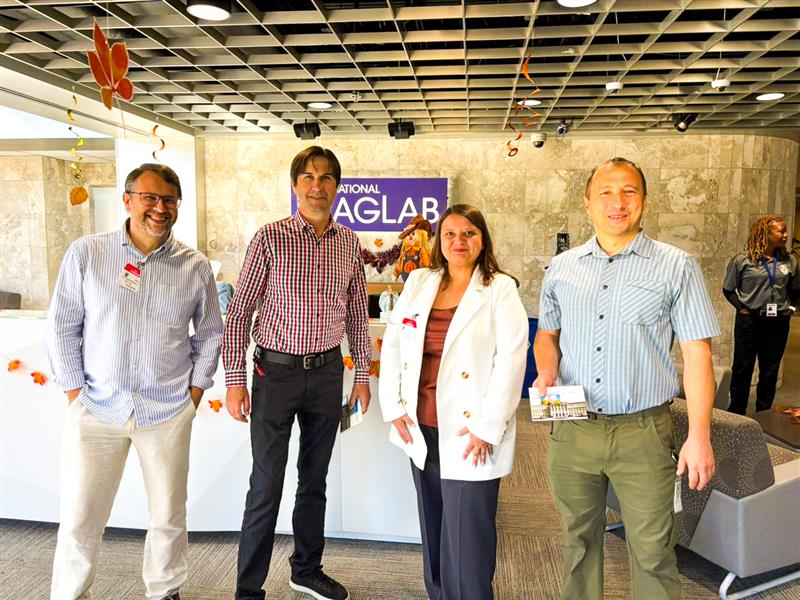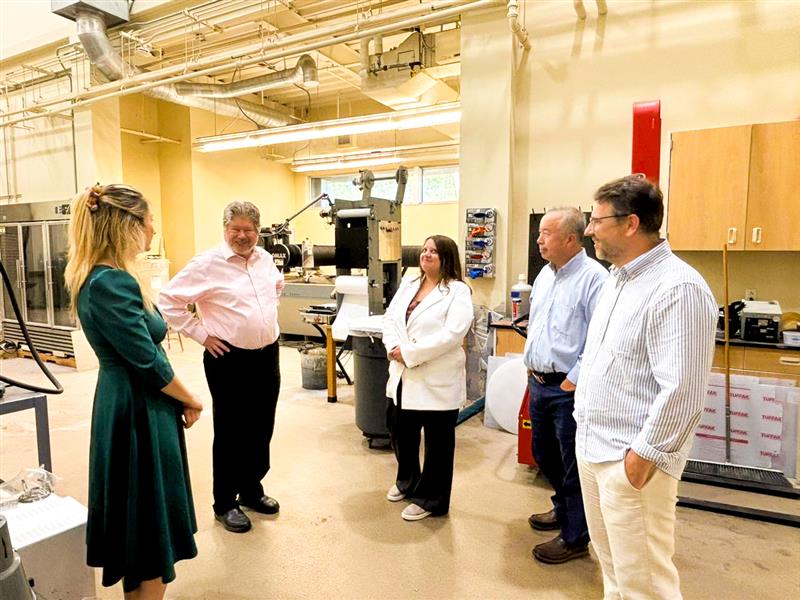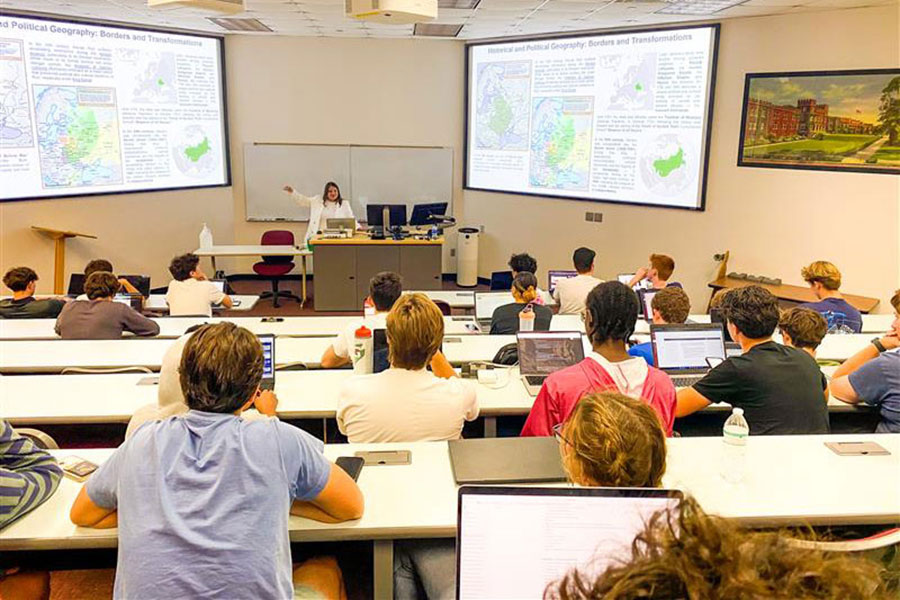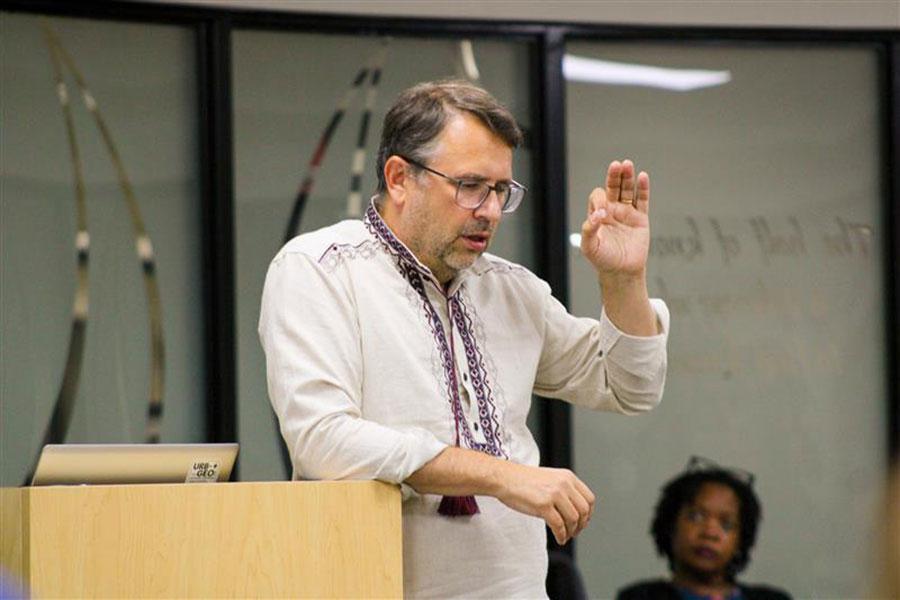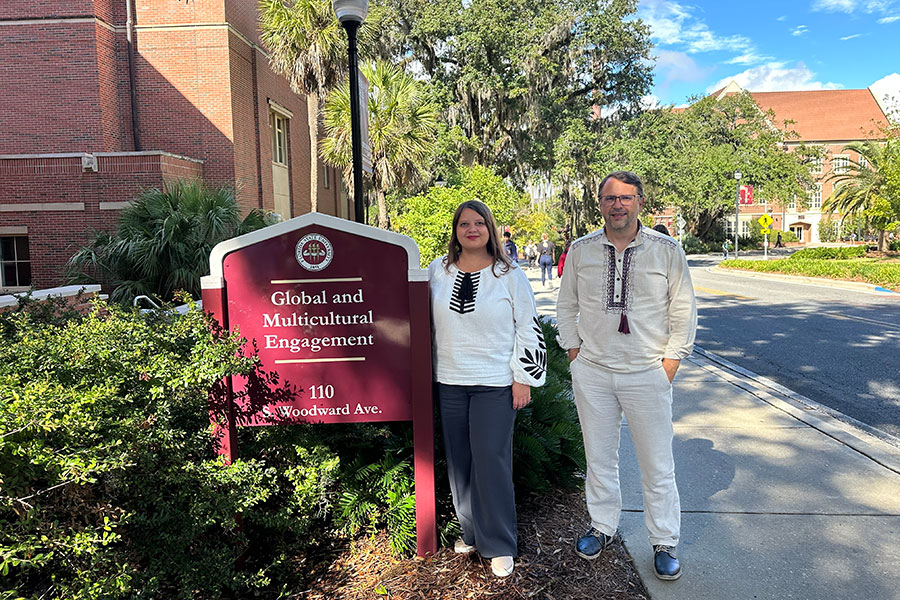
Last month, two Ukrainian scholars visited Florida State University to collaborate with faculty, observe classes and shape new research ideas through the BridgeUSA Ukraine Program for Resilience and Reconstruction (BridgeUSA UPRR), a U.S. State Department–funded exchange that connects Ukrainian and American researchers.
Funded by the U.S. Department of State and the U.S. Embassy in Kyiv, and administered by the American Councils for International Education, BridgeUSA aims to increase mutual understanding between Americans and people of other countries. It remains vital to U.S. national security and to building connections around the world.
Sofiia Doskich, an assistant professor of geography at Lviv Polytechnic National University, and Kostyantyn Mezentsev, head of the Department of Economic and Social Geography at Taras Shevchenko Kyiv National University, spent a month at FSU conducting research, observing classes, developing new course materials, delivering lectures and presentations and exploring the policies and culture that shape U.S. higher education.
This marked the second year that FSU’s Ukraine Task Force, housed at the Learning Systems Institute, hosted fellows from the program. Vilma Fuentes, director of the task force, coordinated the visit, including meetings across campus and trips to surrounding cities.
“We are thankful to the U.S. Embassy in Kyiv and the American Councils for International Education for making these academic exchanges possible,” Fuentes said. “We were honored to have hosted Dr. Sofiia Doskich and Dr. Kostyantyn Mezentsev and to have facilitated these new and growing engagements with Ukrainian academic partners.”
Topics covered during their visit included emergency management, homeland security, urban planning, drone applications, engineering, geography and the reconstruction of urban regions after disasters. The meetings generated a number of areas for research collaborations and partnerships.
At Lviv Polytechnic National University, Doskich develops Global Navigation Satellite Systems (GNSS) by monitoring land deformation and performing laser aerial photography. Most recently, Doskich has helped evaluate damage related to Russia’s invasion of Ukraine since February 2022.
“In the United States, you have more resources, you already have the infrastructure and experience in the field,” Doskich said. “We can connect to your experience and point of view to create something new, something modern, something that can help other people and other societies.”
While at FSU, she collaborated with the Department of Geography and the FAMU-FSU College of Engineering to maximize opportunities for joint research collaborations.
“I came to find collaboration, to share knowledge and research, and this will be very helpful for us, for our country, for other scientists, for other researchers and for other educators,” Doskich said. “It’s good to have someone who can look at your research from another direction and maybe notice some things that they can see from other perspectives.”
At Taras Shevchenko Kyiv National University (KNU) in Kyiv, Ukraine, Mezentsev’s research focuses on urban geopolitics, urban regeneration, urban resilience and urbicide, the intentional destruction of urban and civilian spaces.
“This is not just about us needing assistance and our country being in pain,” Mezentsev said. “We can also exchange information. I’m participating in the BridgeUSA program and it’s a bridge for both sides, not just one way. It’s for both sides to make this bridge more stable.”
His current work, which focuses on rebuilding Ukraine’s cities after the Russian invasion, struck a chord with numerous faculty members across FSU.
“Let’s look at what the impact is on cities through the lens of any disturbance, any disaster for a city,” Mezentsev said. “It could happen anywhere. Tornadoes or hurricanes. Consider evacuation or seeking shelter in the event of a bomb threat. It’s the same way we think about the impact of any external disaster. I asked a group ‘How many of you evacuated during the last hurricane.’ Who stayed at home? What does it mean for your city?”
During their monthlong visit, Doskich and Mezentsev traveled to nearby cities like Atlanta, Miami, Tampa and Gainesville to gain a comparative understanding of how different resilience and reconstruction projects could translate to Ukrainian cities with similar infrastructures.
“Every city is an exceptional case,” Mezentsev said. “In terms of reconstruction, we should think about different cases. How, for example, urban farming as a tool for community resilience, works in a small city like Tallahassee or Gainesville, or how it works in a large city like Miami or Atlanta or Tampa.”
FSU hosted another cohort of fellows from Ukraine in 2024 through the BridgeUSA Ukrainian Academic Fellows Program (UAFP), which also sought to build links between Ukrainian and U.S. scholars for long-term collaboration. The 2024 BridgeUSA UAFP fellows were Andrii Roskalda, Nataliia Safonova, Andrii Balendr and Taras Panchenko.
Panchenko is an associate professor of computer science and cybernetics at KNU, where Mezentsev also works. FSU and KNU signed a memorandum of understanding last year that formally signified mutual interest between the two universities in furthering collaborations and exploring potential partnerships.
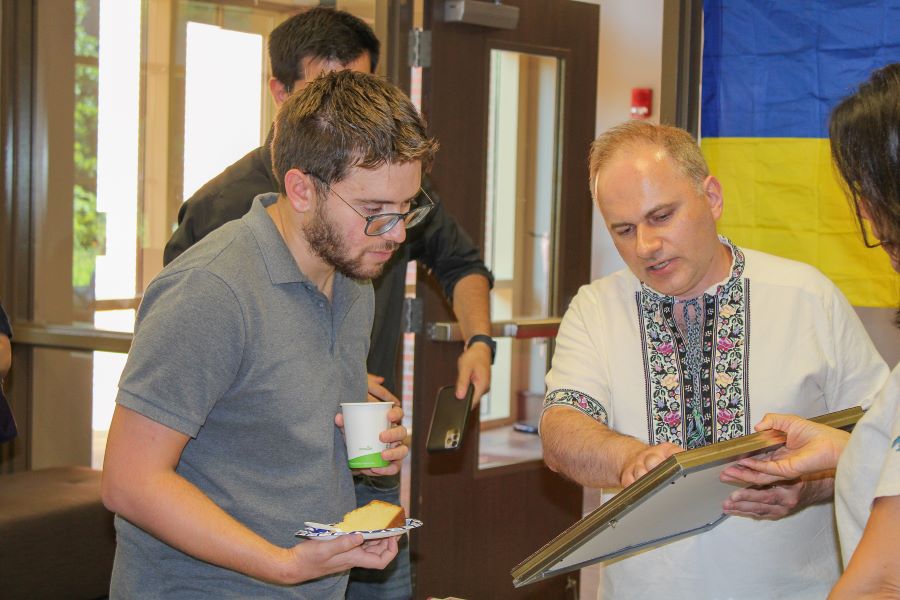
Through Mezentsev and Doskich’s visits as the 2025 BridgeUSA UPRR fellows, FSU is continuing this bridge with KNU and sparking new collaborations with Lviv Polytechnic National University.
“I am very grateful to this program and to FSU for such an opportunity to observe, to exchange our experience and maybe to give Ukrainians the opportunity to implement your experience in other countries,” Doskich said.
“I’m really so happy to be here,” Mezentsev said. “It’s a great experience to see different kinds of transformation, different kinds of urban redevelopment projects, and to see a really great campus, how it works and how to deal with such huge universities.”
LSI strives to lead the way in creating innovative educational solutions that seamlessly connect theory with practice. Through advanced research, we develop industry-leading methods and implementation strategies to enhance systematic learning at all levels and in all environments. For more than five decades, LSI has been committed to driving measurable improvements in the performance of both individuals and organizations.
For more information about FSU’s Ukraine Task Force, visit lsi.fsu.edu/fsu-ukraine-task-force.




